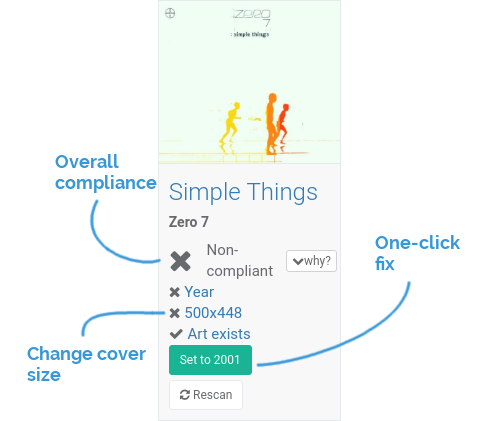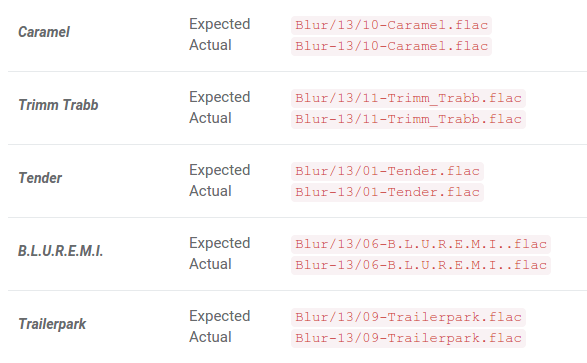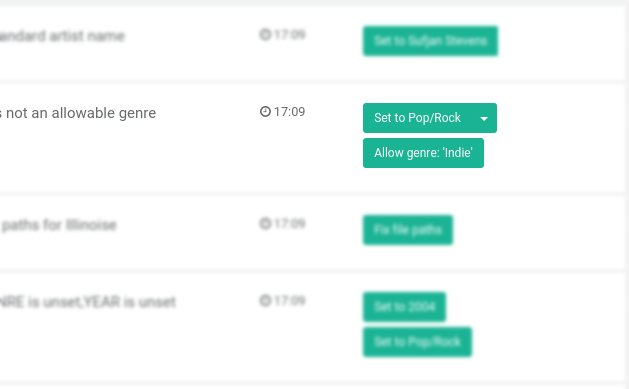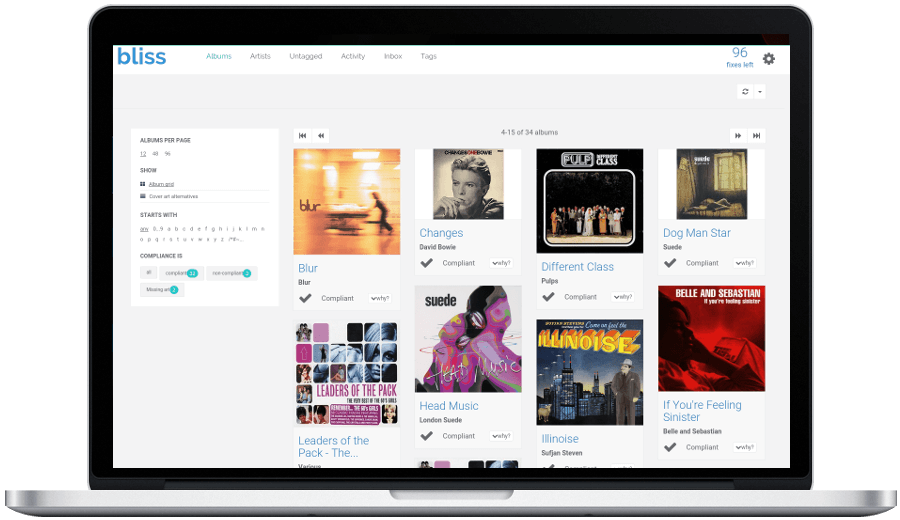
bliss makes large music libraries more browsable, searchable, playable and beautiful.
bliss performs all the hard work in organizing a DJ's music library; making it consistent, correct and complete with little effort. This means a more browseable library, making it easier to find tracks to drop when the time is right.
Imagine defining simple rules by which your music library is organized, and then having a sidekick use those rules to resolve inconsistencies, fill missing information and artwork, and correct wrong data. That sidekick is bliss!
bliss applies these rules forever, aligning new tracks you've found with your existing library, or implementing new rules across your collection as your customers demand.

Music folder organizer
bliss can organize your music files, renaming your files and folders.
You can organize your music files and folders by specifying one file organization pattern. bliss then synchronises your tags with your file names according to the pattern, en masse and automatically if desired.
Any metadata tagged inside your music files can be used in the file organization pattern, and you can also specify how you want to treat whitespace.

Automatic music organizer
bliss works by applying rules to your music library.
When you add an album to your library, bliss automatically assesses the album against your rules. If the album is non-compliant, bliss decides a fix to make sure the album obeys the rule, and optionally applies it automatically.
The rules that you can use to organize your library are extensive and cover everything from the sizing of your artwork to the capitalisation of track names or the granularity of genres permitted. You can even create your own rules!
bliss can work fully automatically, listening to changes in your music files and re-applying the rules to the files that have been added or changed.

Broad format support
It's not just MP3. bliss also finds and removes duplicate FLAC, DSF, WAV, AIFF, MP4 (.mp4, .m4a, .m4p and .m4b) (including Apple Lossless), WMA, OGG, and RealAudio music files. Check out the full list.Runs on...
bliss is software that runs on many different platforms. Download today for Windows PC, Mac and more.







A simple, automatic tool for DJs to maintain correctness and consistency in their music collections
We've organized our digital music libraries for years with manual 'music taggers'. We select files, we multi-update, we've-tried-to-remember-the-genres-we-use and then we curse as we scroll through playlists and find inconsistent artist names, years of release and split compilations. As large music library grows, the manual tagging approach becomes more error prone and requires more effort. bliss works the other way, by allowing you to specify rules by which a large music library is assessed and then automatically fixed.
bliss works in the background, unobtrusively watching a music library. When music is added or updated, it automatically assesses the music against your rules, fixing what it can, and letting you know if it cannot. bliss has a Web based user interface, which means it is accessible from anywhere on your network, or even across the world.
This configuration means bliss can be installed on servers or storage devices to be an "always on" auditor for a large music library. There are integrations to run bliss on Synology and QNAP devices, and other integrations to run bliss within Docker containers.
bliss supports major audiophile music file formats such as FLAC, Apple Lossless, WAV, AIFF and DSF, plus lossy formats besides.

